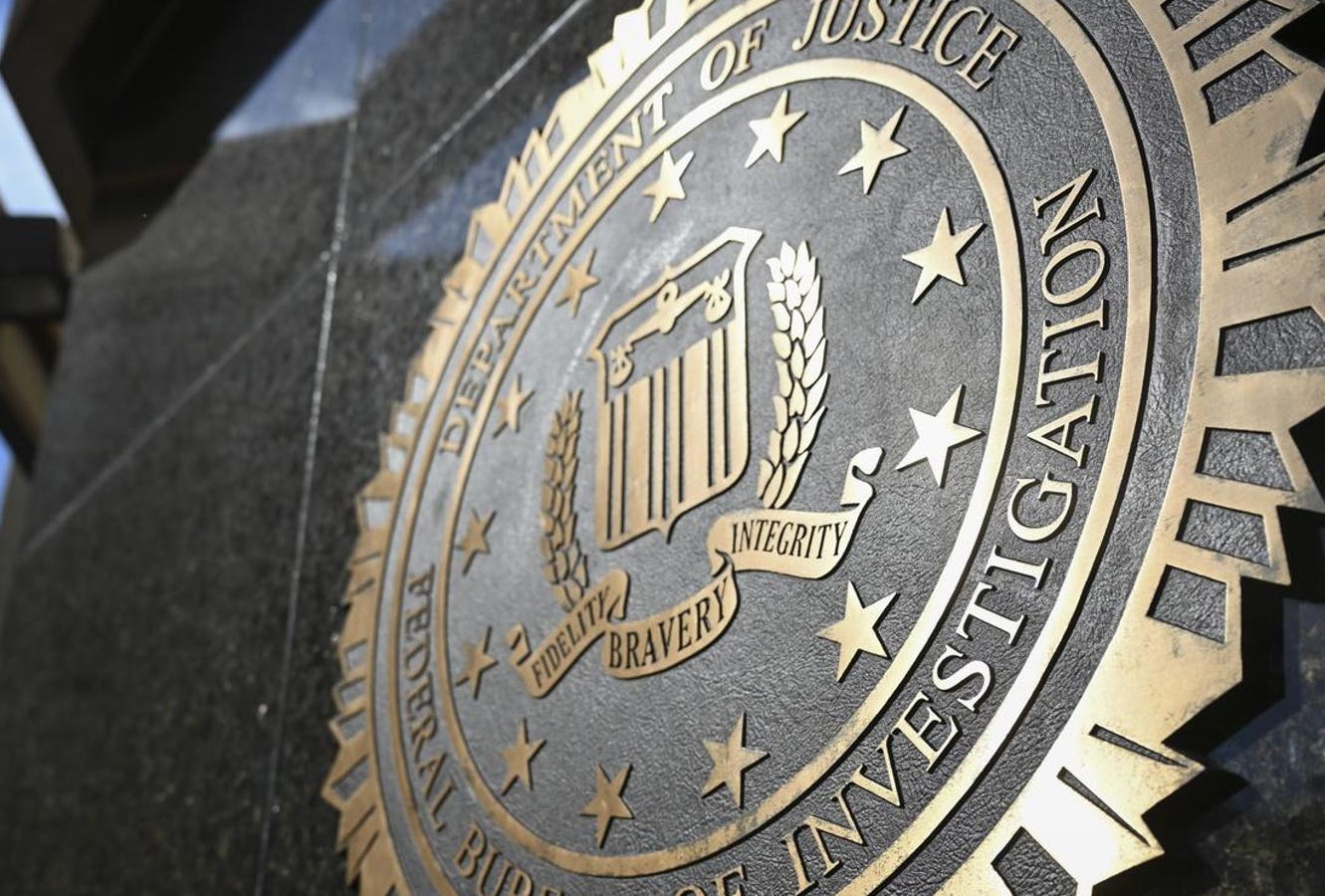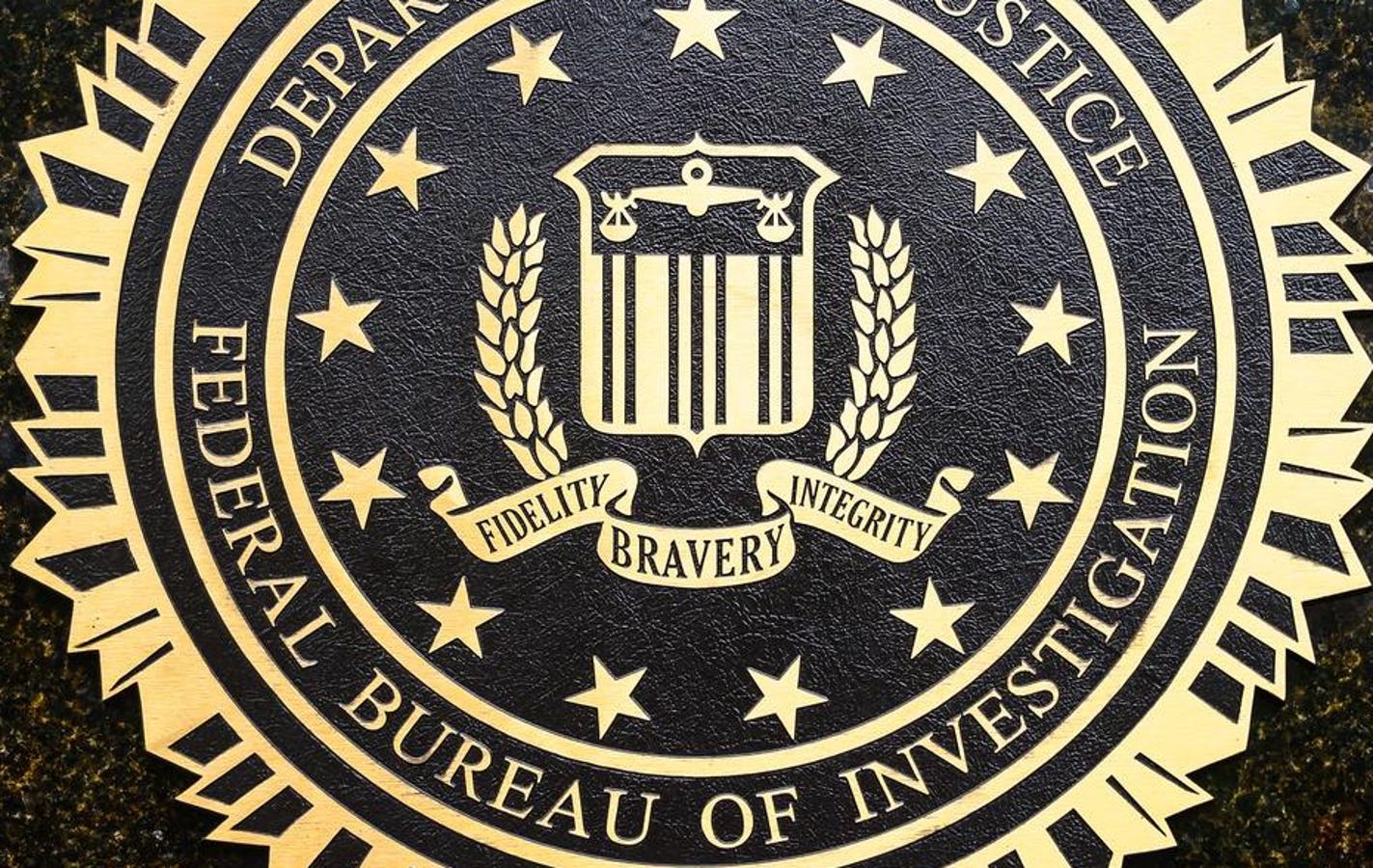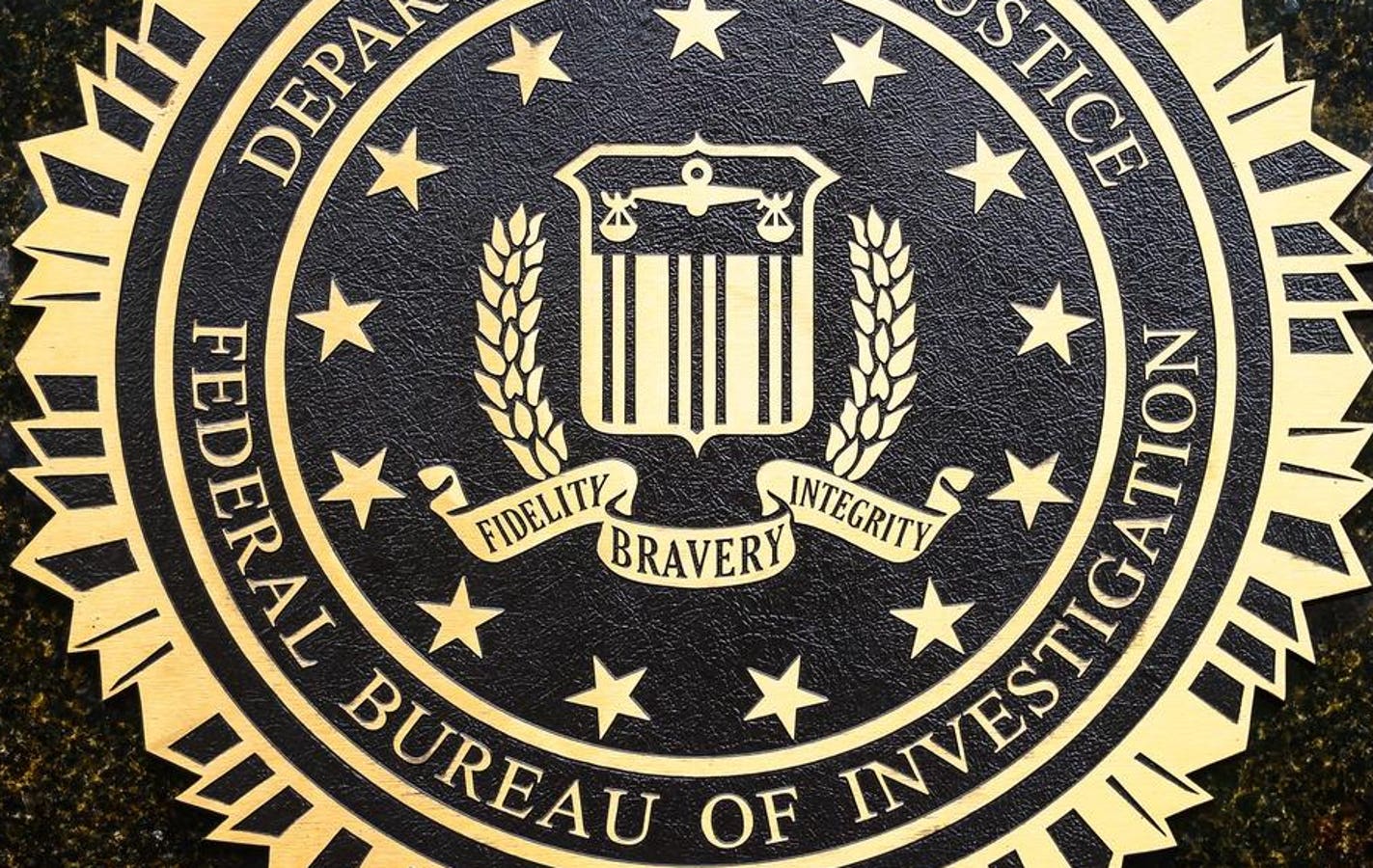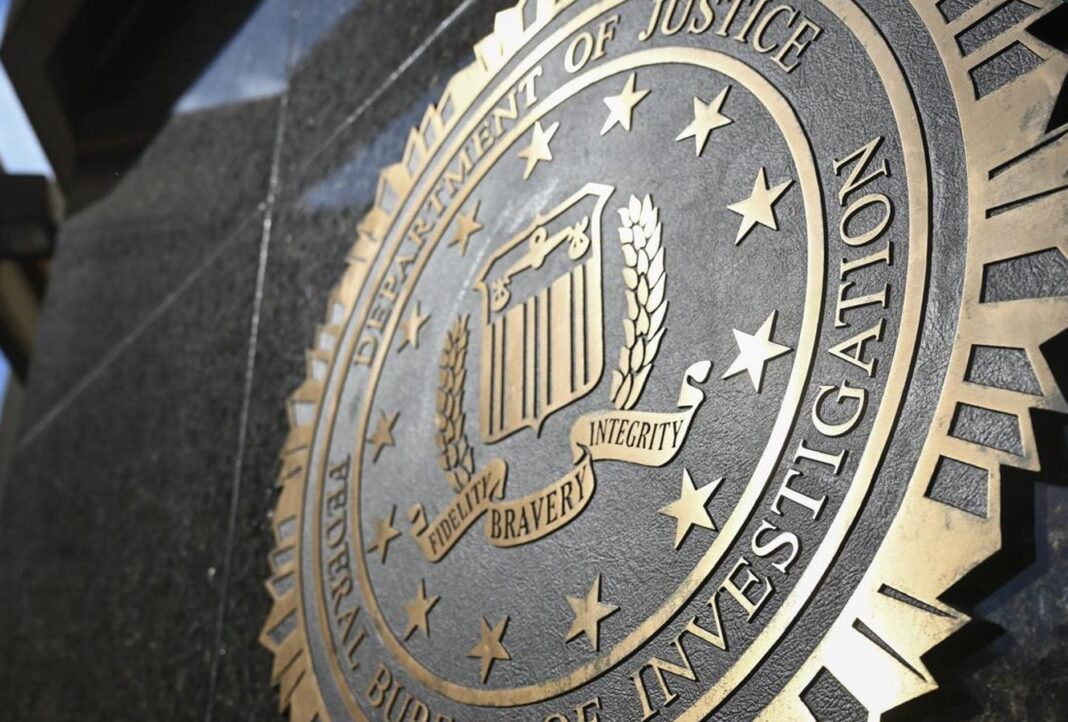## Your Phone’s Buzz Might Be a Trap: FBI Issues Urgent Warning About Text Messages Your phone buzzes, a notification pops up. It’s a message from a familiar contact, maybe even a friend, asking for a quick favor. But what if that message is a wolf in sheep’s clothing, a carefully crafted lure designed to steal your identity or compromise your device? The FBI is sounding the alarm, issuing a stark warning about specific text messages that pose a serious threat to iPhone and Android users alike. Ready to protect yourself? Read on to learn which messages to avoid at all costs.
A Wake-Up Call for U.S. Users
The U.K.’s Apple Compromise and its Global Implications

The recent furor surrounding Apple’s decision to remove full iCloud security for U.K. users shouldn’t be dismissed as a regional issue. The implications reverberate far beyond the shores of the United Kingdom, posing a significant threat to the digital security of iPhone and Android users globally, including those in the United States. This move, while initially shocking, serves as a stark reminder of the ongoing battle between tech giants and governments over access to encrypted user data.
The U.K. government’s pressure on Apple to compromise its encryption protocols sets a dangerous precedent. It signals a willingness to prioritize law enforcement access over user privacy, potentially paving the way for similar demands in other countries, including the U.S. This shift in the digital landscape underscores the urgent need for a robust public discourse about the balance between security and privacy in the digital age.

FBI’s “Responsible Encryption” Stance Explained
In a December warning, the FBI and CISA urged Americans to stop sending texts and rely on encrypted platforms instead. This seemingly contradictory stance – advocating for secure communication while simultaneously pushing for “lawful access” to encrypted data – highlights the complexities of the debate. The FBI’s position, articulated by former Director Christopher Wray, emphasizes the need for “responsible encryption” that balances user privacy with the ability of law enforcement agencies to investigate serious crimes.
The FBI argues that strong encryption, while crucial for protecting user data, should be coupled with mechanisms that allow authorized access in legitimate investigations. The bureau claims that without such provisions, criminals exploit the “unfettered space” of encrypted communications, operating with impunity and hiding evidence of their activities.

The Specter of Backdoors: A Growing Threat
The concept of “responsible encryption” often translates to the creation of “backdoors” – vulnerabilities intentionally built into encryption systems to allow authorized access. While proponents of backdoors argue that they are essential for fighting crime and terrorism, critics contend that they jeopardize the security of all users. Any weakness in an encryption system, even if intended for law enforcement access, can be exploited by malicious actors, potentially compromising sensitive data on a massive scale.
The U.K.’s compromise with Apple sets a dangerous precedent, paving the way for the erosion of end-to-end encryption and the proliferation of backdoors. This could have far-reaching consequences for individual privacy, online security, and the integrity of digital communication.
The Growing Divide: Encryption vs. Law Enforcement Access
The Legal Battleground: U.S. vs. U.K. Approaches
The legal frameworks surrounding encryption and law enforcement access differ significantly between the United States and the United Kingdom. In the U.S., the debate is largely centered around the Fourth Amendment’s protection against unreasonable searches and seizures. The question of whether government agencies can compel tech companies to break encryption without a warrant remains contentious.
In contrast, the U.K. operates under a more permissive legal framework that allows for greater government surveillance powers. The Investigatory Powers Act, passed in 2016, grants law enforcement agencies broad powers to access encrypted communications under certain circumstances. This legal environment has fostered a more cooperative relationship between tech companies and the government in the U.K., as seen in Apple’s recent concession to iCloud security.
The Power of Precedent: The U.K. Sets a Dangerous Tone
The U.K.’s decision to force Apple to compromise iCloud security has significant implications for the global landscape of digital security. It establishes a precedent that other governments, particularly those with less stringent privacy laws, may follow. This could lead to a domino effect, eroding end-to-end encryption and weakening the security of online communication worldwide.
The U.K.’s move sends a chilling message to tech companies: that complying with government demands for access to user data is inevitable, even if it means compromising the security of their products. This sets a dangerous precedent that could undermine the trust users have in digital platforms and erode the fundamental right to privacy in the digital age.
The Evolving Landscape: “Chat Control” in Europe
The European Union is also grappling with the complex issue of encryption and law enforcement access. The EU’s proposed “Chat Control” regulation aims to require tech companies to scan users’ messages for illegal content. This proposal has drawn strong criticism from privacy advocates, who argue that it would undermine end-to-end encryption and create a surveillance state.
The debate over “Chat Control” highlights the ongoing tension between security and privacy in Europe. While the EU is committed to combating terrorism and other serious crimes, it also recognizes the importance of protecting fundamental rights, including the right to privacy. The outcome of this debate will have a profound impact on the future of digital communication in Europe and beyond.
Implications for U.S. Citizens
The FBI’s December Encryption Warning
In December, following the Salt Typhoon cyberattacks, the FBI and CISA issued a stark warning to Americans urging them to switch from SMS and basic RCS messaging to encrypted platforms. This call to action, while not explicitly linked to the U.K.’s Apple compromise, reinforces the growing concern over the vulnerability of unencrypted communication in the face of sophisticated cyber threats.
The FBI’s warning highlights the critical need for individuals to protect their communications from interception and surveillance. By adopting end-to-end encrypted messaging and calling, users can significantly enhance their privacy and security, safeguarding their sensitive information from malicious actors.
Impact of the Salt Typhoon Attacks
The Salt Typhoon attacks, attributed to a Chinese hacking group linked to the Ministry of Public Security, have exposed the vulnerabilities of U.S. communication networks. The campaign targeted telecom infrastructure, compromising the systems of multiple companies and enabling the theft of extensive call and text metadata. While the FBI confirmed that expansive call and text content was not compromised in this instance, the sheer scale of the attack serves as a stark reminder of the potential for data breaches and the need for robust cybersecurity measures.
The Salt Typhoon attacks underscore the urgent need for individuals and organizations to prioritize cybersecurity. By adopting strong security practices, such as using multi-factor authentication, keeping software updated, and relying on encrypted communication platforms, users can significantly mitigate their risk of becoming victims of cyberattacks.
Moving Forward: Balancing Security and Privacy
The U.K.’s compromise with Apple and the ongoing debate over encryption and law enforcement access highlight the need for a nuanced and balanced approach. While ensuring public safety is paramount, it is equally crucial to protect individual privacy and the integrity of digital communication.
Striking this balance requires a multifaceted approach involving collaboration between governments, tech companies, and civil society organizations. Open dialogue, transparency, and a commitment to upholding fundamental rights are essential for navigating this complex landscape and ensuring a secure and private digital future.
The Stakes Are High: What This Means for Your Privacy
The Erosion of End-to-End Encryption: A Slippery Slope
As the recent developments in the UK have shown, the push for “responsible encryption” by governments and security agencies is gaining momentum. This shift in approach is aimed at balancing individual privacy with the need for law enforcement to access encrypted data in specific circumstances. However, this trend raises concerns about the potential erosion of end-to-end encryption, a cornerstone of digital security.
The concept of end-to-end encryption refers to the practice of encrypting messages or data at the point of origin and decrypting them only at the intended recipient’s end. This approach ensures that even the service provider or intermediaries cannot access the content of the communication. The loss of end-to-end encryption would leave users vulnerable to data breaches and interception by third parties.
The Chilling Effect on Free Speech and Dissent
The increasing scrutiny on encrypted communication platforms has raised concerns about the potential chilling effect on free speech and dissent. If governments and security agencies gain unfettered access to encrypted data, it may deter individuals from expressing themselves freely online, fearing that their communications may be monitored or intercepted.
The implications of this trend are far-reaching, extending beyond the realm of national security. A society where citizens are discouraged from engaging in open and free communication is detrimental to the values of democracy and human rights.
The Future of Digital Security: A Call to Action
In light of the developments in the UK and the FBI’s stance on responsible encryption, it is essential for users to take a proactive approach to digital security. This involves being aware of the risks associated with non-encrypted communication platforms and taking steps to mitigate them.
As the landscape of digital security continues to evolve, it is crucial for individuals, organizations, and governments to work together to establish clear guidelines and standards for encryption and data protection. This collaborative effort will help preserve the integrity of digital communication and ensure that the benefits of technology are accessible to everyone.
Practical Steps for Protecting Yourself
Beyond iMessage: Exploring Secure Alternatives
For users who rely on iMessage for secure communication, the recent development in the UK may have raised concerns about the security of their data. Fortunately, there are alternative secure communication platforms available that offer end-to-end encryption.
One such platform is Signal, which has gained popularity in recent years due to its robust security features and ease of use. Signal offers end-to-end encryption for both text and voice messages, as well as video calls and file sharing. Another option is WhatsApp, which has also implemented end-to-end encryption for its messaging service.
Users can explore these alternative platforms and assess their suitability for their specific needs. By doing so, they can ensure that their communication remains secure and private.
Mitigating Risk: Strengthening Your Digital Defenses
While secure communication platforms are essential for digital security, they are not the only aspect to consider. Users must also take steps to strengthen their digital defenses and mitigate potential risks.
This includes using strong, unique passwords for all online accounts, enabling two-factor authentication (2FA) whenever possible, and keeping software and operating systems up-to-date with the latest security patches. Additionally, users should be cautious when clicking on links or downloading attachments from unknown sources, as these can be vectors for malware and other cyber threats.
Staying Informed: Keeping Up with the Encryption Debate
As the encryption debate continues to evolve, it is essential for users to stay informed about the latest developments and trends. This involves following reputable sources and experts in the field of digital security and staying up-to-date with the latest news and research.
By remaining informed, users can make informed decisions about their digital security and take proactive steps to protect themselves and their data in an increasingly complex and ever-changing digital landscape.
Conclusion
In conclusion, the FBI’s warning to iPhone and Android users to refrain from responding to suspicious messages serves as a stark reminder of the pervasive threat of cybercrime in today’s digital landscape. The article highlighted the alarming rise of smishing attacks, where scammers use text messages to dupe individuals into revealing sensitive information. Furthermore, it emphasized the importance of exercising extreme caution when receiving unsolicited messages, as the consequences of falling prey to such scams can be financially devastating and even compromise personal security.
The significance of this topic cannot be overstated, as the proliferation of smartphones has created an environment where cybercriminals can easily target a vast audience. As technology continues to advance, it is imperative that individuals remain vigilant and proactive in safeguarding their digital identities. Moreover, it is essential for law enforcement agencies and tech companies to collaborate in combatting these threats and developing more effective countermeasures.
As we move forward, it is essential to recognize that the onus of cybersecurity lies not only with the authorities but also with individual users. By adopting a proactive approach to digital security and remaining informed about emerging threats, we can collectively create a safer online environment. Ultimately, the warms against cybercrime serves as a poignant reminder that our digital lives are inextricably linked to our real ones, and it is our collective responsibility to protect them.
